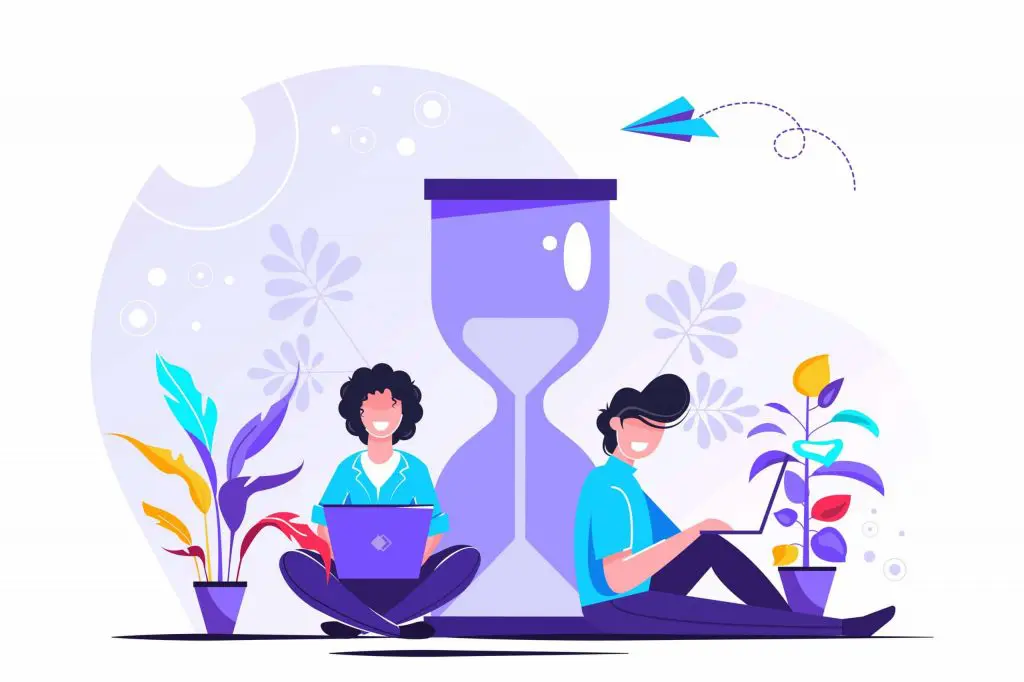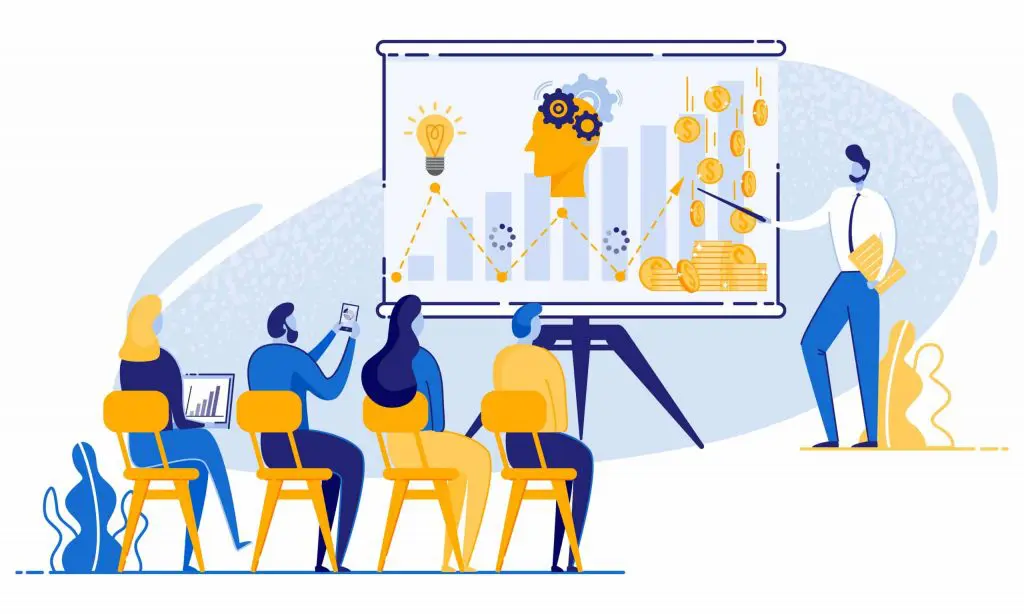Decision-Making challenges and 8 simple tips to make smarter decisions
Smart decision-making for Clarity
No matter what profession or business or personal life you are leading, decision-making is a part of it. Sometimes they are small ones, like what to wear today or what to have for lunch. Other times they are much bigger like how to manage the project, what the boss would say, or even purchasing a house, and other decisions that can have a lasting impact on your life or the lives of others. How do you make good ones? There is no one right answer, but there are some things that can help to decide rightly. Keep reading to find out more!
When we struggle with decision-making, it can suggest that there are problems in our lives. This may result from mental health issues such as depression or anxiety which prevent us from taking action on important changes needed for success both at home and in work environments.
The inability to choose between two options often indicates more serious psychological conditions like major depressive disorder (MDD)or generalized Anxiety Disorder(GAD).
Let’s proceed to understand what actually affects the process of decision-making.
Table of Contents
What are the inabilities affecting decision-making?
Making decisions is a key part of any profession, yet it’s not always easy to do what’s right. There are a number of inabilities that can affect our decision-making, including cognitive biases, emotions, and social pressures. In this blog post, we’ll take a closer look at these inabilities and explore how they can influence our decisions. We’ll also discuss ways to overcome these obstacles and make better decisions in our professional lives.
Being A Perfectionist
People who fear making mistakes may be more likely to avoid deciding, even though they seem like the perfect decision-making person. The signs that someone could have this issue include an inability or refusal of any kind of commitment and also procrastination when it comes to a time to do something important like picking out what clothes you’re going wear on date night!
Those perfectionists who struggle with decision-making often find themselves overwhelmed by their options. They do not want to get the wrong food for a party or choose the wrong outfit. It can actually take them a long time to make simple decisions.
Lot of Overthinking
We all know that decision-making can be difficult. But when you’re constantly thinking about what the best course of action might entail, it starts to feel like an impossible task! Some people will plan and replan an event thinking of every eventuality. They overthink things almost to death and often end up being stressed out as a result.
The line between good and bad decision-making is sometimes thin. It may be a tiny detail of something that holds up your larger plan, but if you overthink it then this could cloud what should have been an easy choice in favor of the later stages when things go south or don’t work out as planned
Struggling as a People pleaser
The people pleaser is always looking for approval and validation from others, even if they don’t really need it. The need to be liked often leads them into an endless cycle of giving in order to get what they want or expect — which just perpetuates more needing on their end without any real satisfaction achieved by either party involved as well as ultimately feeling worse about themselves because now you’re chasing after someone else instead of having self-respect beforehand when all along everything should’ve been fine! It creates this terrible dynamic where we keep oscillating back n forth between these two points.
Rather than spending time on themselves doing what is best for them personally, people pleasers fill their time with other people’s concerns.
Jobs of Lower Level
One of the downsides to being uncomfortable with making choices is that they will often reflect this in their career choice. They may prefer jobs where there are well-defined parameters and little room for initiative, which can account for why these individuals have turned down promotions but still do not get along at work very well overall even though some might think otherwise!
Lack of Self-confidence
It takes a certain amount of confidence to boldly make important life decisions and this is something people with low self-esteem may struggle with. Someone who has little self-confidence may struggle to make simple choices such as what to wear based on a negative self-image. They may feel they do not look good in any clothes so it becomes a struggle.
A lack of confidence in yourself will likely lead to an inability to trust your own decisions. You don’t think you are able to make a good choice about things so you may avoid having to decide entirely.
How can we make better life decisions?
Making a significant choice about your life, whether it’s changing jobs, relocating, or ending or establishing a relationship, may be daunting, and you might be reluctant to make a choice until you’re completely sure.
A “major” life decision is one in which you purposefully choose between two or more alternatives, knowing that the conclusion would have a substantial and often long-term influence on yourself or others. If you’re unsatisfied with the outcomes in your life currently, making an effort to change your decisions beginning now will be the key to being the person you want to be and living the life you desire.
We all make decisions in our lives and some of them can be major. The first big decision you will face is whether or not to go to university, but other significant ones might come along that seem more one-of-a-kind like what career path best suits me? We tend to overwhelm ourselves with thinking about these things too much which leads me back to my original point: if we want better judgments then maybe going through an emotions-based process rather than relying solely on logic would help us out.
If we follow our gut this may succeed sometimes although this is based on our own personal experiences. A lack of experience, therefore, means that our guts have very little information from which to form decisions and this can lead to big mistakes.
Here are the methods that can be tried to make smarter decisions.
1. Confirm your goals and values
Our life decisions are very much our own so we need to know what we believe in and where we want to go. This is not a difficult thing to do; it merely takes some self-reflection to understand what we want out of life and what we are willing to do to achieve that.
Pursuing certain careers for example may mean compromising personal beliefs. This is something that should be considered when making a smart decision. If you have to change who you are to get something it has to be worth it, if not then it is not the right path for you.
2. Quickly collect Information
We may think we know a lot about something from having experienced it or hearing things about it. Joining the circus for example may seem cool and fun but what is the reality? It is important to arm yourself with knowledge and not assume you already know everything. A knee jerk decision can lead you down a path to something you ultimately end up hating.
So, research your goals and understand what it takes and what the rewards are. We cannot make a smart decision if we do not know all the facts.
3. Select your option and plan
Once you have gathered the information, take your time to consider and assess all the options it is time to decide. The smart decision will be the one that fits who you are, meets your goals and makes sense for your life. Once you make the decision plan thoroughly how to pursue this option.
4. Analyse the consequences
Once you know the ins and outs of where a decision may lead you then it is time to fully assess. Create a list of the positives and negatives of making this decision. When you have a visual representation of the pros and cons you can make a more intelligent decision. If the pros outweigh the cons, then this may be a smart decision.
5. Determine the importance of your decision
Determine the importance of the decision and the influence it will have on your life first. Secondly, make a list of everyone who will be affected by your decision. Not only will leaving your job affect you, but also your life partner, children, coworkers, business partner, and so on.
Finally, the choice you make is yours to make, and it should be based on your contentment. Remember that when you’re encircled by people who depend on you, every choice you make has an impact on them as well.
6. Use Your Available Time
Some decisions need to be made at the moment, like “What am I going to wear?” or “What do I want to eat?” However, important decisions in life should not be made too quickly. It takes consideration to make a smart decision. There may be a deadline for your choice to be made and there is nothing wrong with using every minute of that time if you have to.
Do not let yourself be rushed into a decision that may affect the rest of your life. If someone proposes marriage to you after dating for a week and that thought hasn’t even occurred to you, there is nothing wrong with not deciding straight away. A smart decision requires thinking so take all the time you can to consider before making your choice.
7. Learn from your mistakes
We are human, which means we are imperfect and prone to making mistakes. It’s unavoidable to make a poor judgment now and then. So, having made poor judgments and dealing with the consequences of those actions will serve as a tool to aid you in making better ones in the future.
Accept responsibility for the outcomes, and make efforts to fix any bad decisions we’ve made. Think of alternatives for a better solution. At the same time, the next time you are making a tough decision, your best bet might be to do your research and then take a break before choosing.
The secret to making better judgments is to educate yourself and ensure that you are well-versed in all of the elements at play. When presented with a decision, the worst thing you can do is overthink it.
8. Uncertainty about the decision outcome
It’s not so much the process of decision-making that scare us; it’s the uncertainty of the outcomes and consequences of those decisions that we’re most afraid of. No one is genuinely scared of heights; instead, they are afraid of falling. Making wise and productive judgments is a skill that can only be gained through life experience. We learn how to make decisions as children, even if we aren’t always aware that we are being educated to do so.
We all face decision-making challenges every day. By understanding some of the basic psychological principles that come into play when we make decisions, we can start to make smarter, more informed choices. The next time you find yourself struggling to choose between two options, remember these eight tips and see if they help you make a better decision.
Blogs on goals, project management, and others are dependent on decision-making skills. Please go through the blogs. Also, we have our website where you have access to content related to this blog and many more, our website is http://clap.skillculture.in




Responses